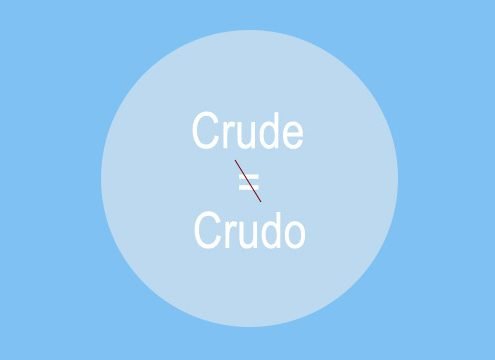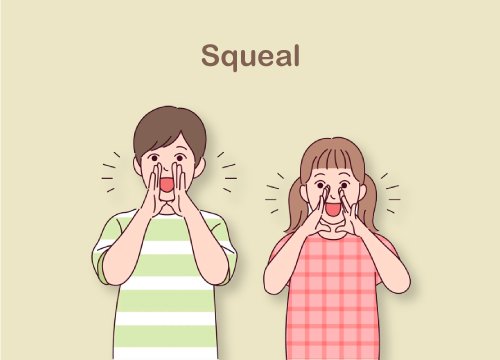Be careful with “crude”. It looks similar to “crudo” but there are differences. Consider this sentence:
- Ester likes eating crude carrots. This is wrong. The correct sentence is:
- Ester likes eating raw carrots.
In one context “crude” means “unprocessed” (sin refinar), and refers to oil or materials, but not to vegetables and fruit. For example:
- The price of crude fluctuates with supply and demand (el precio del crudo fluctúa con la oferta y la demanda).
- Ester does not like raw fish (Ester no le gusta el pez crudo).
- Your forbears (antepasados) used crude stone tools (empleaban útiles de piedra rudimentarios).
Crude can also mean vulgar or rudimentary (rudimentario). A joke can be crude (grosero), and behaviour can be crude, as can language and a piece of work.
- Mr. Podemos made a crude attempt to unite his party (…hizo un burdo intento de unir el partido).
- He made a crude remark (hizo una observación cruda).
The adverb is crudely. Two examples:
- He spoke crudely (groseramente).
- To put it crudely (or bluntly or frankly), the EU is livid about Brexit (hablando en plata, el EU esta lívida…).







